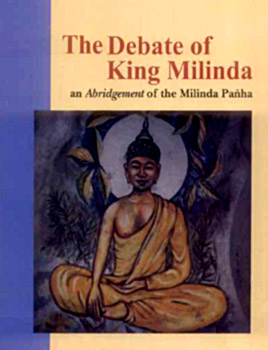 Contribution of Kashmir to Buddhist literature has been immense. One of the prime reasons for this is that Buddhism had acquired a place of much prominence in Kashmir and had a rather strong following there. Kashmir came to enjoy a high reputation as a centre of Buddhist learning. Kanishka`s Council held in Kashmir in the first century A.D. gave a powerful boost to the growth of Buddhist learning, especially to what is called the Sanskrit Buddhism. The Council sat for six months and collected all available sayings and the teachings of Lord Buddha and the other masters of the law and drew up expository Commentaries on them. The "Greater Vehicle of the Law" (Mahayana) was drawn up here by Buddhist theologians in consultation with the Acharyas of this holy land.
Contribution of Kashmir to Buddhist literature has been immense. One of the prime reasons for this is that Buddhism had acquired a place of much prominence in Kashmir and had a rather strong following there. Kashmir came to enjoy a high reputation as a centre of Buddhist learning. Kanishka`s Council held in Kashmir in the first century A.D. gave a powerful boost to the growth of Buddhist learning, especially to what is called the Sanskrit Buddhism. The Council sat for six months and collected all available sayings and the teachings of Lord Buddha and the other masters of the law and drew up expository Commentaries on them. The "Greater Vehicle of the Law" (Mahayana) was drawn up here by Buddhist theologians in consultation with the Acharyas of this holy land.
One of the most important Buddhist works, Milinda Panha, was written by the reputed Kashmiri author, Nagasena (150 B.C.). Milinda Panha is a record of the elegant and eloquent conversation that the Theravadin had with the Bactrian King of Northern India on a number of controversial issues of Buddhism. The original book, which was probably written in Sanskrit language, is lost but its Pali language and Chinese recensions are available. Numerous Kashmiri Buddhist scholars have written original works in Sanskrit and Prakrit language and translated several into Chinese, Tibetan and other foreign languages. Kumaralabdha, one of the four luminaries of Buddhism, is known to be a Kashmiri. Kumarajiva, also known to be a native of Kashmir, is regarded as one of the greatest translators of Sanskrit texts into Chinese. As a result of the pious labours of distinguished scholars like Kumarajiva, Buddhayasha, Dharmaraksha and Gunavarman, Kashmir became renowned for learning and scholarship in China. Among the Buddhist scholars who worked in Tibet may be mentioned the Kashmiris Shantigarbha, Sarvajnadeva and Shakyasribhadra.
Thus, it can be seen that Kashmir played a rather important role in the field of Buddhist literature. Not only were a number of important works of the Buddhist religion sand its teachings and beliefs written and composed in Kashmir, but there were a number of Kashmiri authors who contributed to the dissemination of the teachings and works to the different parts of Asia.



















